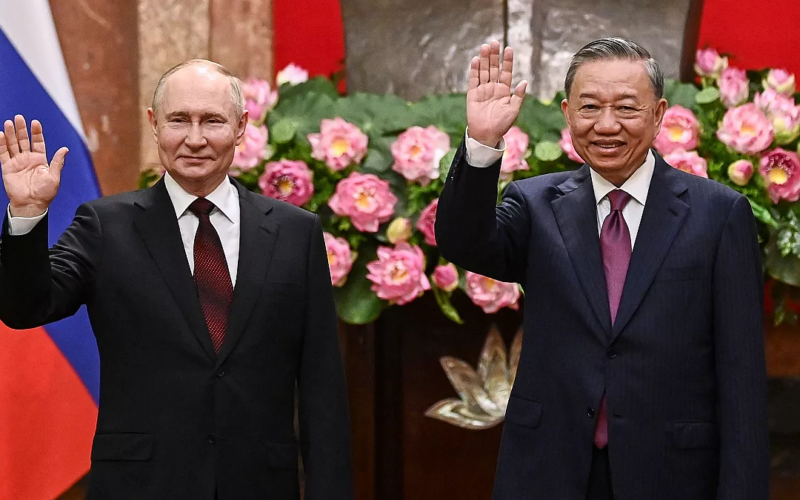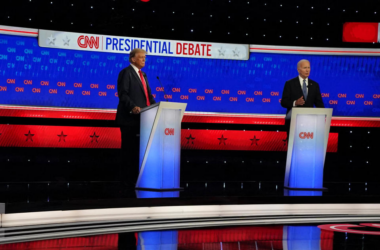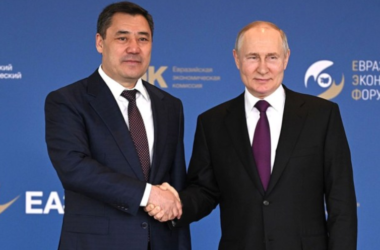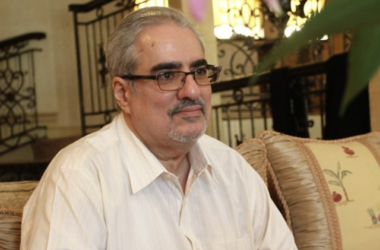During a state visit by Russian President Vladimir Putin, Vietnam has pledged to enhance its strategic partnership with Russia, emphasizing the move’s importance for global peace and regional stability.
Vietnamese President To Lam welcomed Putin with a 21-gun salute at a military ceremony on Thursday. Putin, who has been facing significant international sanctions and an arrest warrant from the International Criminal Court over the Ukraine conflict, stressed that strengthening relations with Vietnam is a priority for Russia.
During the visit, the two leaders signed agreements to boost cooperation in areas including education, science and technology, energy, climate change, and health. Notably absent from the discussions were agreements regarding arms, reflecting Vietnam’s need to diversify its military supply chains due to difficulties in obtaining Russian arms amid the ongoing conflict in Ukraine.
Al Jazeera’s Tony Cheng reported that Vietnam is cautious in its dealings, aiming to maintain strong ties with China and the US while hosting Putin. The Vietnamese military, historically reliant on Russian-made arms, is seeking assurances regarding future supplies and exploring ways to reduce its dependence on Russia.
Putin’s visit included meetings with Communist Party General Secretary Nguyen Phu Trong, Prime Minister Pham Minh Chinh, and parliamentary chief Tran Thanh Man. Despite the warm reception, Vietnam is careful to balance its traditional ties with Russia against its relationships with other major powers, including the US and China.
Analysts, such as Nguyen Khac Giang from Singapore’s ISEAS-Yusof Ishak Institute, suggest that Putin’s visits to Asian countries like China, North Korea, and Vietnam are attempts to counter international isolation due to the conflict in Ukraine. Meanwhile, Vietnam values its relationship with Russia for military equipment and oil exploration technologies crucial to its claims in the South China Sea.
The United States has expressed concerns over the visit, particularly regarding potential arms agreements that might benefit Russia in the Ukraine conflict. Both Russia and North Korea deny any weapons transfers, which would breach UN Security Council sanctions.
Despite these international tensions, Vietnam and Russia maintain a longstanding relationship dating back to 1950. This year marks 30 years of their treaty on “friendly relations,” evidenced by Soviet influences still visible in Vietnamese cities.
Bilateral trade between Russia and Vietnam was valued at $3.6 billion in 2023, a fraction compared to Vietnam’s trade with China ($171 billion) and the US ($111 billion). Russia remains a significant, though declining, supplier of arms to Vietnam, with efforts underway to diversify Vietnam’s military imports over time.
Prashanth Parameswaran of the Wilson Center notes that Russia’s engagement with Vietnam signals its resilience in Asia despite the Ukraine conflict, while Vietnam continues to solidify a key traditional relationship amidst evolving international dynamics.








